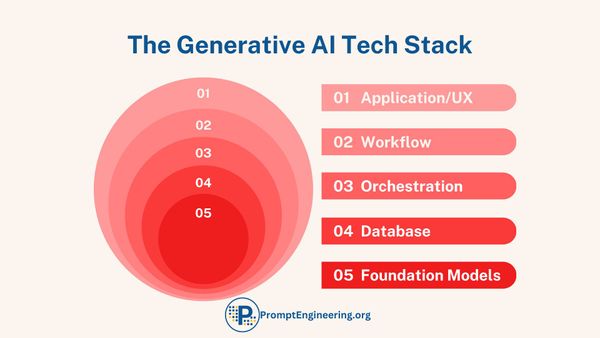By serving up tailored knowledge whenever and wherever it is needed, generative AI models bridge expertise gaps across time, space, and access, providing contextual insights to individuals irrespective of location or resources.
Overcoming Previous Constraints on Accessing Expertise
The Time and Effort Needed Before Generative AI
In the pre-generative AI era, obtaining expert advice often required time-intensive searches and financial investment. Consider a small business owner drafting an investment pitch deck. Their only recourse was locating and paying a consultant, resulting in high costs and variable quality.
Instant Expertise in the Generative AI Age
Contrast this to today's prompt-engineered AI systems. That same business owner can now rapidly receive customized guidance grounded in expansive knowledge databases. This not only saves time and money but reduces biases that stem from individual consultants' limited perspectives.
Collapsing Boundaries of Time and Space
Generative models like GPT-3 provide on-demand expertise without geographic or temporal constraints. A small business owner in rural Idaho can access the same level of guidance as a Fortune 500 executive in New York City. The AI system effectively collapses space, delivering specialized knowledge anywhere with an internet connection.
Similarly, these models collapse time by serving up expertise whenever needed. Unlike human consultants who operate on fixed schedules, prompt-based AI is available 24/7. A marketer can receive strategic recommendations at 2 AM on a Saturday, accessing knowledge that previously required scheduling time with an expert.
Democratizing and Leveling the Knowledge Landscape
The anytime, anywhere nature of generative AI democratizes knowledge by making robust expertise broadly accessible. Geographic and socioeconomic factors that once created barriers to high-quality guidance no longer limit individuals' ability to obtain tailored insights.
Consider a student in a remote village researching university scholarships. Their options used to consist primarily of local resources within their community. Now they can leverage expansive databases to uncover opportunities suited to their unique goals and abilities.
This leveling of the knowledge playing field empowers individuals to make more informed decisions, engage in lifelong learning, and tap into expertise that was once siloed within specialized institutions.
Aggregating and Conveying Insights
Aggregating Dispersed Knowledge
One of the powers of generative AI is its ability to aggregate dispersed knowledge across many sources. The models capture insights from vast datasets, academic literature, and the writings of domain experts across every field. This allows them to synthesize perspectives from thousands of specialists to provide users with a comprehensive snapshot of the state of knowledge on a topic.
Rather than being limited by the singular viewpoint of one consultant or advisor, prompt-based AI systems can incorporate diverse expertise. For example, a model can integrate learnings from psychologists, neuroscientists, coaches, and patients when generating guidance on improving mental health. This multiplicity of perspectives leads to more balanced, nuanced recommendations compared to consulting any individual subject matter expert.
Conversational Accessibility
Unlike traditional mediums for transmitting expertise like academic papers and manuals, chat-based generative AI systems have conversational interfaces. This makes obtaining specialized insights feel more like having a discussion than deciphering dense texts.
Simply prompting the model in natural language provides an outlet for curiosity without the friction of formal searches. The back-and-forth also allows for iteratively adjusting questions based on previous responses. If a concept is unclear, users can smoothly ask for clarification or additional examples.
This conversational approach helps remove barriers that can make engaging with expert systems feel intimidating or frustrating. Knowledge flows reciprocally rather than just top-down from manuals. Generative AI still has limitations in emulating human discussion. However, the progress toward more accessible interfaces hints at future possibilities for making specialized knowledge feel welcoming to all.
Adaptable Explanations
A key advantage of generative AI is its ability to adapt the way information is conveyed based on the recipient's needs. While human experts typically operate at a fixed level of technicality and depth, prompt-based systems can adjust their explanations to the user's level of understanding.
For example, when queried by a biologist, the model can provide nuanced biochemistry details. But that same system can use more everyday analogies and simplified language to explain the same concepts to a high school student.
This adaptability makes advanced knowledge more accessible to those without subject matter expertise. Generative models can reshape technical insights for general audiences, opening up possibilities for lifelong learning. Of course, care must be taken to provide accuracy despite simplification. But when done responsibly, AI's capacity to reshape explanations unlocks new ways of sharing wisdom.
Looking Ahead at Responsible Generative AI
As with any powerful technology, we must ensure prompt-based models are deployed responsibly. Thoughtful oversight is needed to address risks around bias amplification, misinformation spread, and potential overreliance on AI guidance.
However, used judiciously, generative AI represents an immense opportunity to enable human potential by bridging expertise gaps. These models provide a path to more equitable access to knowledge - a universal human right foundational to just societies.








